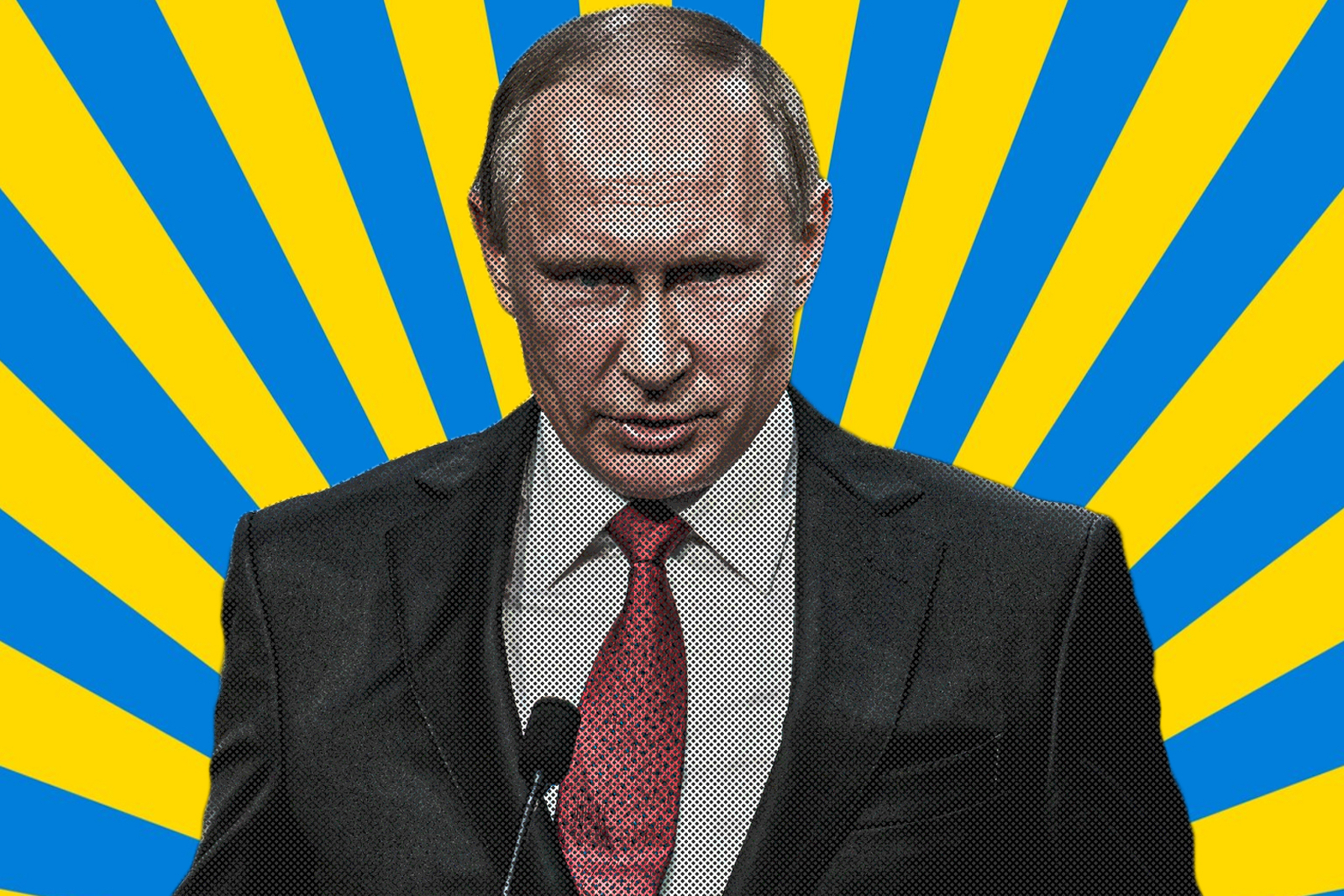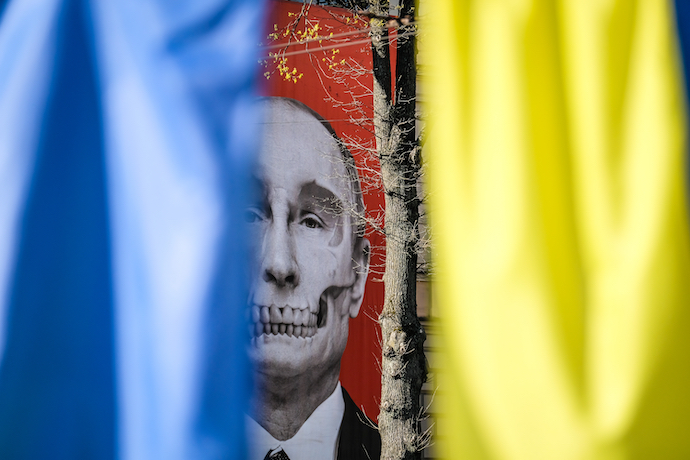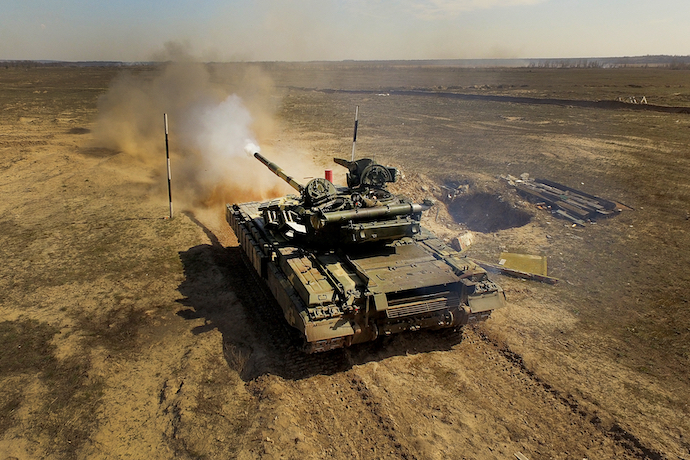
Putin’s Geostrategic Blowback in Russia’s Periphery
Last month, at the annual St. Petersburg International Economic Forum, Kazakh President Kassym-Jomart Tokayev cautiously rebuked Russia’s posture towards Ukraine by stating that Kazakhstan does not recognize “quasi-state territories which, in our view, is what Luhansk and Donetsk are.” Boldly enough, he made this statement on stage while sitting next to Russian President Vladimir Putin. Moments earlier, Putin had used the conference to claim that the entire former Soviet Union was actually “historical Russia.” This undoubtedly raised eyebrows in Kazakhstan and other former Soviet states.
To many, this altercation came as a surprise, given that both countries are ostensibly close allies. Yet, it fits a broader trend of neighboring countries deviating, in varying degrees, from their traditional doctrine of pragmatic non-confrontation towards Moscow. With his bellicose actions and statements, Putin has alienated even his friendlier neighbors, thereby compromising his security environment and thwarting his neo-imperialist venture. The Russian leader primarily has himself to blame for it, given his lack of strategic insight.
Already before Tokayev’s latest rejection to recognize Luhansk and Donetsk as independent nation-states, Kazakhstan turned down a Russian request for its troops to join the offensive in Ukraine. More recently, Roman Vassilenko, Kazakhstan’s deputy foreign minister, refused to pledge allegiance to Russia by stating that “if there is a new Iron Curtain, we do not want to be behind it.”
His administration surely did not forget Putin’s ominous remark in 2014, shortly after Russia had annexed Crimea, that former Kazakh President Nursultan Nazarbayev had “created a state on territory that never had a state,” and that “Kazakhs never had any statehood, he [Nazarbayev] has created it.” Those assertions echo similar statements Putin made about Ukraine in the run-up to the war. With his veiled irredentist remarks, interference, and expansionist actions in Russia’s backyard, Putin has fomented distrust and anxiety along Russia’s borders.

Also in Finland, a country that has maintained a pragmatic working relationship with the Kremlin for over half a century, a paradigm shift has materialized. Whereas previously the Finnish leadership (and the vast majority of its population) chose not to join NATO, largely due to its long-standing proclivity not to antagonize Moscow, Helsinki swiftly applied for NATO membership after Russia invaded Ukraine. Putin’s actions in Ukraine have ruined a long-standing sense of stability in the Nordics, leaving the Finns to feel threatened and pushing them beyond the threshold of military non-alignment.
For them, the war in Ukraine brought back hideous memories. Joseph Stalin invaded Finland in 1939, but the Finns, despite being heavily outnumbered, warded off the Soviets and thereby averted capitulation. Many Finns fear the possibility of events unfolding in a similar fashion, given that their country shares a border of 830 miles with Russia.
In Belarus, Putin still finds a close ally. Belarusian President Alexander Lukashenko actively supports Russia’s aggression in Ukraine. He enabled Russian troops to move into Ukraine through the Belarusian border in the north. With this, the Belarusian strongman reciprocated Putin’s help in maintaining his own political power. Lukashenko faced an unprecedented public uprising after having claimed victory after the fraudulent August 2020 presidential elections. Putin subsequently bailed out Lukashenko by offering financial and military aid to help crack down on the protests. This has proven decisive for the Belarusian autocrat to retain power, but also leaves him with practically no space to deviate from Putin’s dictates.
Hence, contrary to Kazakhstan and Finland, it seems that Putin has tucked Belarus firmly in the Kremlin’s geostrategic orbit. Yet, by propping up a not-so-popular dictator, the Russian president has made the political opposition in Belarus increasingly anti-Putin. Moreover, very few Belarusians back Russia’s war in Ukraine. A poll by Chatham House concluded that only 3 percent of the country’s population supported the potential involvement of Belarusian troops in the offensive in Ukraine, and no more than 16 percent supported Lukashenko’s decision to allow Belarusian territory to be used as a staging ground to invade Ukraine. Belarusians are frustrated with their leader for selling their country’s independence to Moscow. Thus, while Putin has for now succeeded in preserving Lukashenko’s presidency, he simultaneously created a potential detonating bomb by aggravating Lukashenko’s opponents.
These developments in Kazakhstan, Finland, and Belarus point to a serious flaw in Putin’s security strategy. In order to protect his regime from outside threats, the Russian president relied merely on subversive tactical moves instead of strategic acumen. In fact, the Russian president never developed a solid security strategy that takes into account the potential long-term effects of his actions. This is now coming back to bite him.
Putin’s security strategy in Russia’s periphery resembles a three-stage rocket. First, the Russian leader seeks to ensure and/or cultivate the presence of a government that is, willingly or unwillingly, responsive to Moscow’s interests. In varying degrees, this applied to Finland and still applies to Kazakhstan. Clearly, this is most evidently the case in Belarus, where Putin keeps Lukashenko on a tight leash. If that does not work out, the Russian leadership can actively provoke conflict through which it destabilizes the country in question and creates a frozen conflict at its border. It can then choose to escalate or de-escalate these conflicts in accordance with its interests, like in the case of Georgia where Russia created the client states of South Ossetia and Abkhazia. Finally, as a measure of last resort, the Kremlin can choose to annex foreign territory under false pretenses, like it did with Crimea, and it is currently doing in other parts of Ukraine.

This security strategy coalesces with Putin’s irredentist view of a “Greater Russia,” as it seeks to bolster Russia’s power in the post-Soviet space. The war in Ukraine should have been the embodiment of symbiosis between these two doctrines. Yet, it did quite the opposite. It raised the level of insecurity at Russia’s borders and wrecked Putin’s revisionist, neo-imperialist endeavor.
“Putin is [a] good tactician, but a bad strategist,” is a recurring statement in discussions about the Russian leader, and that now seems to hold water more than ever. Putin being a “good tactician” pertains to his pragmatic ‘fixes’ to perceived security problems and his seizing of short-term geopolitical opportunities. These include Russia’s war in Georgia in 2008 to prevent the country from joining NATO; its lifeline thrown to the embattled Belarusian president in an effort to defy public opposition, thereby consolidating Russia’s power over Minsk; and its military intervention in Kazakhstan through the Collective Security Treaty Organization (CSTO) in January in response to civil unrest, thereby securing peace at the Russia-Kazakhstan border and seeking to increase its influence in Central Asia’s largest and richest country.
These ‘tactical successes’ in the geopolitical and security spheres sharply contrast with Putin’s track record in attaining goals that have a lasting impact. His administration eschewed to sincerely reforming and diversifying Russia’s economy and successfully integrating it into the global economy. As a result, Russia’s economy is excessively dependent on the price-volatile oil and gas trade. Putin has been trying hard to regain Russia’s preeminent position in world politics, but his country lacks the technological and industrial capacity to be considered a sustainable world leader with global shaping power. The size of Russia’s economy is on par with the combined GDP of the Netherlands, Belgium, and Luxemburg. Instead of ramping up productivity and growth through genuine market-oriented reform, Russia’s economy is laced with official corruption. Putin created a vast kleptocratic system through which he funds his position of power, to the detriment of the Russian people.
Also, the size of its population (145 million) is no match to that of China (1.4 billion), the EU (447 million), and the U.S. (334 million). In fact, Russia is experiencing an endemic demographic recession with a population which is rapidly aging and decreasing in size. The only real structural power Moscow has lies in its nuclear capacity and the size of its military. Of course, its oil and gas reserves provide the country with important leverage over the West. Yet, its ability to use these resources as a political weapon has an expiration date.
What remains is a country that lacks the economic, technological, diplomatic, and soft power means to be able to exert power on a global scale. Yet, it is also a country with a long-lasting obsession with encirclement, revisionist ambitions, and a neo-imperialist appetite. And this is where the “bad strategist” part kicks in: Putin has failed to successfully synchronize Russia’s capabilities with his geopolitical aspirations. This misjudgment has led to a critical geostrategic fallout for Moscow, while providing the West (but also China and India) with an opportunity to fill the void. Western policymakers are thus advised to smartly engage with countries in Russia’s periphery and build up their political capital in Central Asia and Eastern Europe.
Putin’s pivot to belligerent tactical moves has brought his country closer to the edge of the abyss. The unprecedented sanctions regime imposed upon his country will have an adverse impact for years to come. Even in the areas of geopolitics and security, where Putin has thus capitalized on many opportunities, his decisions and statements are now causing serious blowback as neighboring countries are reassessing their relationship with the Kremlin, thereby undermining Russia’s geostrategic position vis-à-vis the West, China, and India. The Russian president has forged irreversible grievances among many people in its near abroad, disseminating distrust and shattering Russia’s influence, power, and reputation. By continuously acting on fear and archaic irredentist beliefs, Putin has realized exactly the opposite of what he desired.

